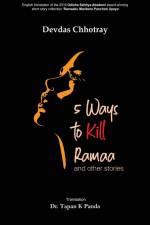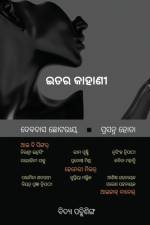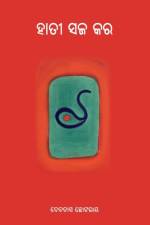av Devdas Chhotray
245
Fantasy and prudence are like a swing door through which imagination and creativity move without any effort. Devdas Chhotray acknowledges that the stories are tantamount to falsehood though it is perceptible at a certain point.'Five Ways to Kill Ramaa' is a uniuqe theme of the writer playfully toying with disparate ideas to kill Ramaa. The writer builds a castle in the air and conceptualizes five different ways of doing this. Since her childhood, he has known Ramaa. Then he had frequently visited Tiku, who is Ramaa's elder brother. She was a sloppy mess and had unkempt hair, which was covered with dandruff, and that's the reason why her hair was shaved frequently. In his childhood, Ramaa's living room became a place to enact the play where he and Ramaa acted like a couple and Tiku as a tutor. Ramaa draped herself with Kuni aunty's saree, decked herself up in jewels and had put vermilion on her forehead. He fantasized about Ramaa in the same attire when he was thirteen. He still remembers when Ramaa wore a saree for the first time. She looked like a beautiful rose in her pink saree. She revealed her grandeur. She appeared like a bride, but he could never see her because, fifteen years after of this incident, she eloped with Bikas and solemnized her marriage in court.Ramaa's attitude towards the writer was never favourable, but her first saree-draped matured figure transfigured him into a grown-up man.In Bikas and Ramaa's story, the writer introduces the character, Bikas. Bikas's personality enticed Ramaa, and she was put under a spell by his charm. Ramaa justified her action and, of course, succeeded in marrying Bikas. The writer was a scapegoat in this affair and witnessed their marriage. His bitterness for Bikas grew with time, and he always tried to find a way to spoil this prospering liaison.'Why to Kill Ramaa' presents the writer's devilish vision of slaying Ramaa. In 'The First Attempt,' the writer spilled kerosene all over the floor and lit a fire. The glass case in which Ramaa was standing was engulfed with fire. The next day he turned the newspaper's pages, apprehending that the news might have been published but finally concluded that it was his dream but not the reality. In the second, third, fourth, and fifth attempts, the writer lists various strategies to kill Ramaa. These indicate his attitude and resentment for Ramaa.



